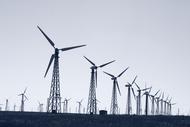
The Energy Collective Group
This group brings together the best thinkers on energy and climate. Join us for smart, insightful posts and conversations about where the energy industry is and where it is going.
Post
Climate Narratives - from differing perspectives
Originally published here.
Several narratives have evolved around the issue of climate change. The narratives originate in the science, but focus on different aspects of the science and different interpretations of its meaning.
The Intergovernmental Panel on Climate Change (IPCC) AR6 scientific narrative focuses on global temperature anomalies, climate sensitivity, climate forcings and feedbacks, and climate model projections of future warming. The AR6 narrative attributes most or all of the measured warming to anthropogenic CO2 emissions. It projects that the globe would warm by 2.5 – 4.5°C if global annual anthropogenic CO2 emissions are not reduced toward zero in the future.
The IPCC scientific narrative is the basis for the IPCC political narrative, which evolves through the development of the Summary for Policymakers and the Synthesis Report. The AR6 political narrative declares climate change to be a “crisis”, an “existential threat” and an “emergency”. The need to reduce anthropogenic CO2 emissions in the future evolves into the professed need to reduce anthropogenic CO2 emissions to Net Zero by 2050 through the elimination of fossil fuel combustion for all energy end uses. This political narrative proclaims the worsening of extreme weather events, though the IPCC scientific narrative does not detect any significant trends in extreme weather frequency, intensity or duration.
The skeptical narrative includes scientific results ignored or excluded by the IPCC in the development of AR6. These include studies suggesting significantly lower climate sensitivity to a doubling of atmospheric CO2 concentrations and studies which establish that the effect of CO2 as a greenhouse gas in the atmosphere is essentially saturated. These studies suggest that further climate warming would be less than 1°C. The skeptical narrative also focuses on the positive results of increased atmospheric CO2 concentration, such as the greening of the globe, reduced plant sensitivity to drought, longer growing seasons and increased crop yields.
The renewables narrative extols the perceived benefits of a transition to a renewable energy economy, including reduced energy costs and reduced air pollution. Combined with the political narrative, it perceives a transition to an “all-electric everything” energy economy by 2050, based almost solely on wind and solar generation.
The energy equity narrative defends the right of developing nations to continue to rely upon and increase their use of fossil fuels in support of their economic development objectives. The support for continuing and expanding fossil fuel use flies in the face of the scientific and political narratives which call for reductions in fossil fuel use. It also flies in the face of the renewables narrative, since it acknowledges that renewable generation is not the best economic development option for these nations. Clearly, if renewables were the path to a lower cost, reliable energy economy with lower air pollution these financially constrained developing nations would not choose to develop a fossil fuel infrastructure which would then be replaced by renewable infrastructure at a later date at additional cost.
The energy equity narrative is more consistent with the skeptical narrative, which is far less concerned about increased atmospheric CO2 concentrations.
Discussions
No discussions yet. Start a discussion below.
Get Published - Build a Following
The Energy Central Power Industry Network® is based on one core idea - power industry professionals helping each other and advancing the industry by sharing and learning from each other.
If you have an experience or insight to share or have learned something from a conference or seminar, your peers and colleagues on Energy Central want to hear about it. It's also easy to share a link to an article you've liked or an industry resource that you think would be helpful.






















Sign in to Participate